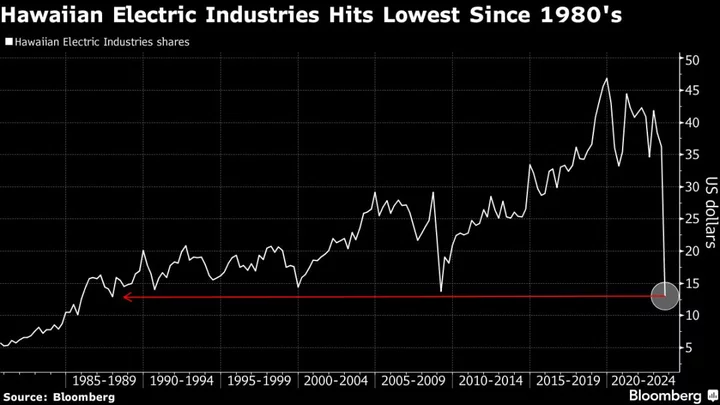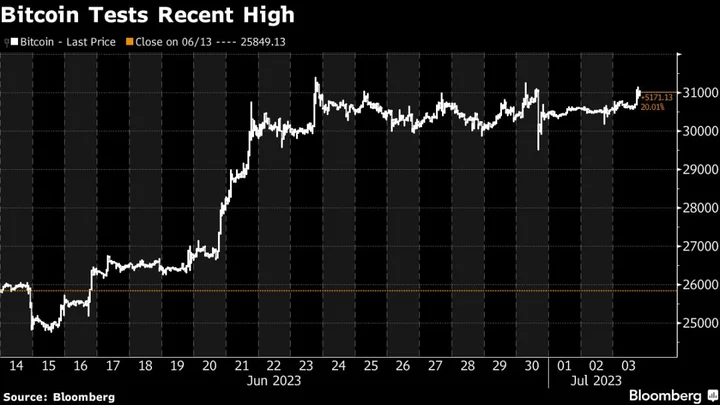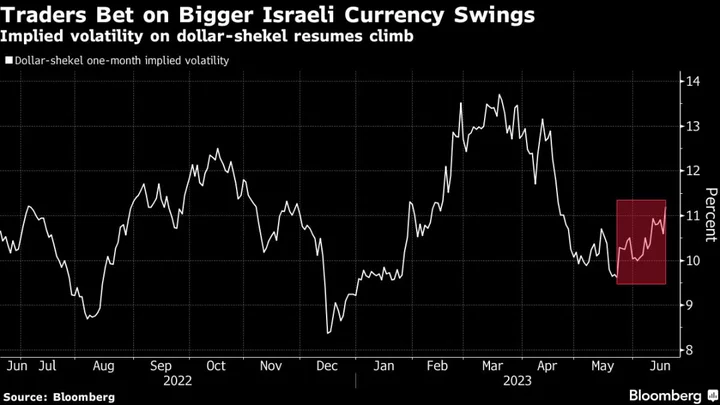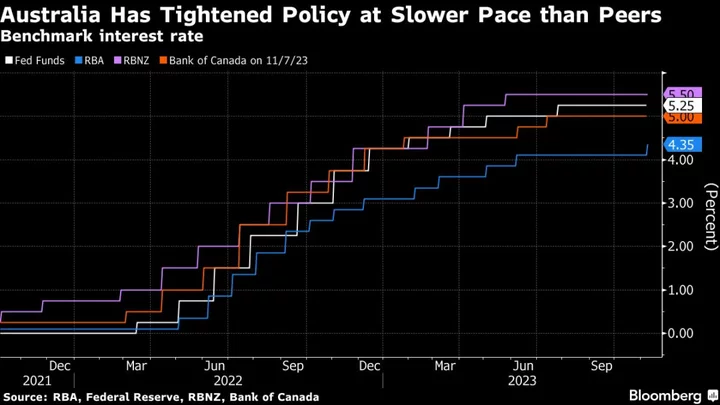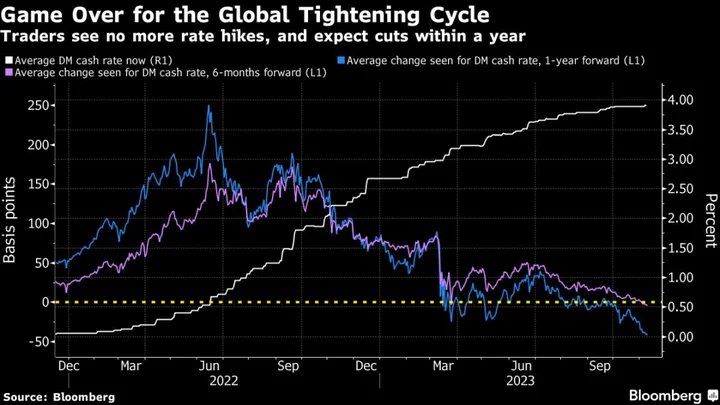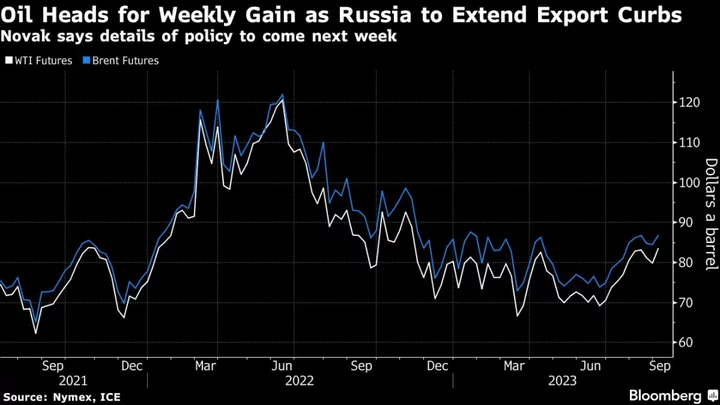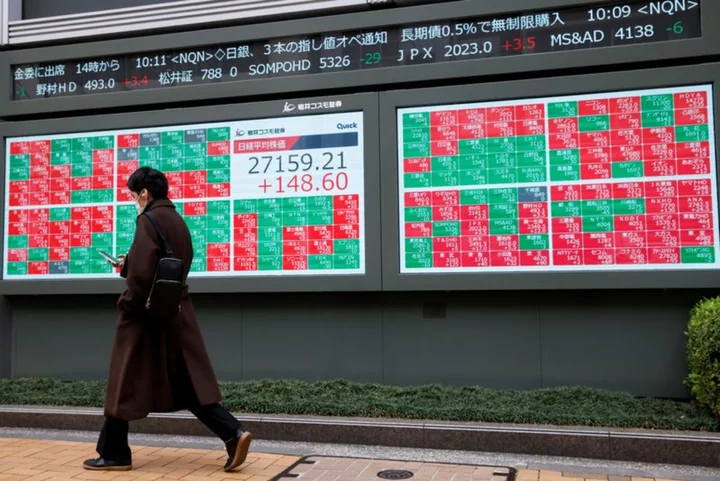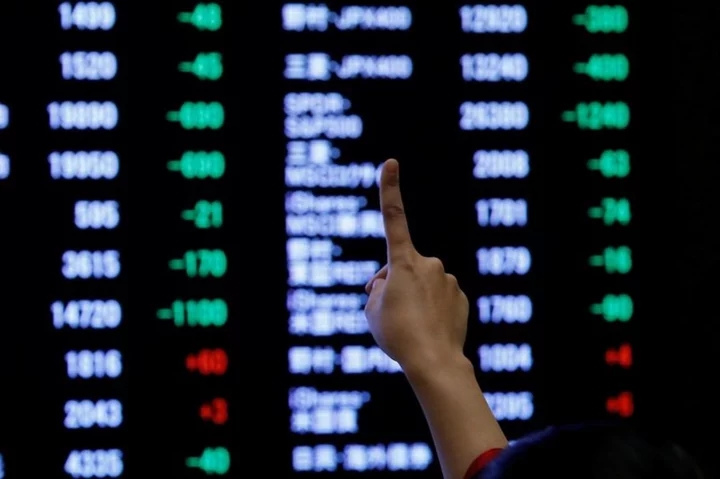Hawaiian Electric Industries Inc. shares are headed to the worst weekly drop in at least four decades on concern it may be responsible for the fires that ravaged the island of Maui, with Wells Fargo’s analyst warning the possible liabilities could be large enough to wipe out the value of its utility arm.
The stock has tumbled nearly 60% this week, the steepest decline in data going back to 1980, and ended Thursday at a 36-year low. The selloff was driven by concern among investors that the company’s power-equipment may have started the blaze, though no official cause has yet been determined.
The risk has driven investors and Wall Street analysts to deeply dial back their outlook for the company, which also owns American Savings Bank FSB. Guggenheim analyst Shahriar Pourreza pulled his price target on the stock, saying the “shares are untouchable.” At Wells Fargo, Jonathan Reeder slashed his estimate from $25 to $8, advising clients to assume that the utility business is now effectively worthless.
“We believe it is prudent to assume the utility is worth $0/sh as property damage, loss of life plus pain & suffering, and economic losses are likely well into the billions of dollars, far exceeding the utility’s pre-wildfire equity value,” Reeder told clients in a note.
Fallout from wildfires drove the California utility PG&E Corp. into bankruptcy after its equipment was found to have started some of the blazes, including one in 2018 that killed more than 80 people and destroyed the town of Paradise. The toll in Maui has already surpassed that, making the fires the US’s deadliest in more than a century.
Hawaiian Electric pared some of the drop Friday, rising as much as 14% after the company said in a filing that it’s seeking advice from experts. Hawaii Electric also said there’s no precedent in Hawaii for the application of the type of legal principle like the one that figured in the California utility’s downfall.
“The goal is not to restructure the company but to endure as a financially strong utility that Maui and this state need,” the company said in the filing.
The company did not respond to a request for comment on analysts’ views.
The stock had fallen for eight consecutive days before Friday’s bounce, and the value of the company’s banking unit may provide a limit on how low the price could fall. For that reason, Wells Fargo’s Reeder upgraded the stock to the equivalent of a hold rating, saying much of the risk was mitigated by this week’s steep drop.
“The precise downside from here is less clear as, at a minimum, we believe the bank has value,” Reeder wrote.

